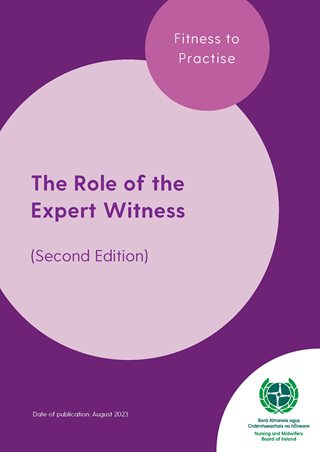What happens in the inquiry room
At a Fitness to Practise inquiry, when you go into the inquiry room the following people will be present:
- The members of the Fitness to Practise Committee (FTPC). There will normally be five members, three of whom are not nurses or midwives, one nurse and one midwife. One member of the committee will act as the chairperson.
- A legal assessor. This is a Senior Counsel (barrister) who will sit with the FTPC and advise them on the law and procedure as required. The legal assessor does not take part in the FTPC’s decision-making.
- The CEO’s legal representatives. These will include a barrister and / or a solicitor. The barrister presents the case in support of the allegations facing the nurse or midwife and will question the witnesses so that they can give their evidence.
- A member of the Fitness to Practise Department staff. This person provides assistance to the Fitness to Practise Committee members.
- A stenographer. The stenographer records all the evidence given at the inquiry.
The following people may or may not be present while you give your evidence:
- The nurse or midwife. This is the persons against whom the allegations have been made.
- The nurse or midwife’s representatives. These may include a barrister, a solicitor and / or a trade union representative. The representative will present the case or speak on behalf of the nurse or midwife, put the nurse or midwife’s position to the FTPC and question the witnesses about their evidence. Some nurses and midwives choose not to have any legal representatives and may defend their own case.
- An expert witness on behalf of the CEO. The role of the expert is to assist the FTPC by providing an independent opinion, based on their expertise, in relation to the matters which are the subject of the allegation.
- An expert witness on behalf of the nurse or midwife. As for the expert witness on behalf of the CEO.
- Members of the public. If the inquiry is held in public, there will be a designated seating area for members of the public to watch and listen to the proceedings.
- The media. As for members of the public.
You will be seated opposite the chairperson of the FTPC and you should address your evidence and responses to any questions to the chairperson.
Sometimes the FTPC will ask witnesses, members of the public and the media to leave the inquiry if there are any confidential matters to be discussed. If this happens, you will be brought back to the witness waiting room until the inquiry restarts.
Taking the oath or affirmation
When it is your turn to give evidence, a member of the Fitness to Practise Department staff will bring you into the inquiry room and show you to the witness table opposite the chairperson of the FTPC.
You will be asked to state that you will tell the truth. You can make this statement by reading aloud an oath while holding the Bible or another holy text in your right hand (swearing in). Alternatively, you can affirm to the FTPC that you will tell the truth. A member of the Fitness to Practise Department staff will hold up a card with the wording of the oath or affirmation and ask you to read aloud. You may then sit down.
Giving evidence, examination and cross-examination
After you have sworn or affirmed that you will tell the truth, the chairperson of the FTPC will introduce the committee members to you and instruct you to answer any questions that are put to you.
The barrister acting on behalf of the CEO will question you first (examination (in chief). These questions will be based on the contents of your witness statement. Then the nurse or midwife or her representative (if she is represented) will question you (cross-examination).
Finally, the members of the FTPC may ask you questions about your evidence. It is likely that the FTPC will not have access to and will not have seen your written statement.
We understand that you will probably be anxious or nervous about being questioned. These tips may be of some assistance to you:
- Take time to think about what you have been asked
- If you do not understand a question or do not know the answer, you should say so
- Try to speak clearly and slowly so that everyone can hear what you are saying
- Remember that the FTPC do not know what you are going to say
- If you feel that you need a break from giving evidence, you can ask the chairperson for one. If a break is taken during cross-examination, you will not be allowed to talk to anyone about the inquiry, including the CEO’s legal team, so you will usually be asked to go to a separate waiting room.

The Role of the Expert Witness
.pdf Download (229KB)
Download